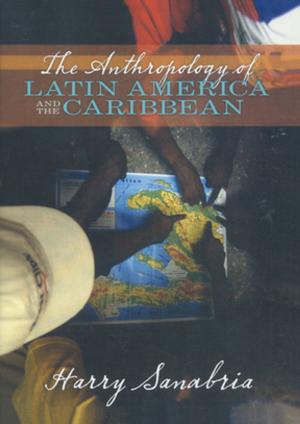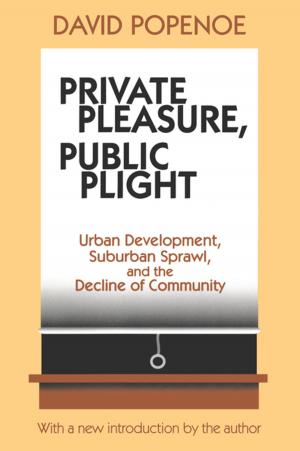Culture and Civilization
Volume 2, Beyond Positivism and Historicism
Nonfiction, History, World History, Social & Cultural Studies, Social Science, Sociology| Author: | ISBN: | 9781351524407 | |
| Publisher: | Taylor and Francis | Publication: | February 6, 2018 |
| Imprint: | Routledge | Language: | English |
| Author: | |
| ISBN: | 9781351524407 |
| Publisher: | Taylor and Francis |
| Publication: | February 6, 2018 |
| Imprint: | Routledge |
| Language: | English |
This second volume in this new series aims to anchor the 21st century in the tradition of the new, to raise methodology into historiography. As the new millennium develops, it is becoming evident that science and society are critical pivots in the formation of a larger mosaic of culture and civilization. A tradition has developed and refuses to dissolve under the withering aspect of analysis. Whether flying under the banner of Arthur Lovejoy, George F. Kennan, Pitirim Sorokin, Arnold Toynbee, Alexander Solzhenitsyn, T. S. Eliot, Thorstein Veblen, and countless others, it has become clear that making sense of the whole, and not resting easy with bits and pieces has become the mission of Culture & Civilization.
This second volume expands upon the initial efforts to deepen the sense of tradition, with outstanding contributions ranging from Charles Murray, The Happiness of the People; Peter Watson, Ideas: A History of Thought from Fire to Freud; Evan Selinger, Ethics and Poverty Tours; Walter A. McDougall, American Policy Traditions in the Middle East; Raymond Ibrahim, Violence in Judaism, Christianity and Islam; Michael Curtis, Israel: Land, Law, and Legitimacy; Marian Tupy, Persistent Poverty in Africa; David Ronfeldt and Danielle Varda, Cyberocracy Revisited; a retrospective by Leo Alexander on Medical Science under Dictatorship; and a series of brilliant new essays on Wyndham Lewis, Jonathan Swift, Max Scheler, and Thurman Arnold.
Culture and Civilization does not embrace idiosyncratic visions of the apocalypse or the end of Western empires. It does attempt to bring together immediate issues and ideas that are substantial and challenging. The essential polarity between democracy and autocracy has now taken on historical dimensions that has now taken on larger, deeper dimensions in different political economic, and ecological terrain of our day is civilization versus barbarism. This second volume is a sober, deeper response to such a challenge.
This second volume in this new series aims to anchor the 21st century in the tradition of the new, to raise methodology into historiography. As the new millennium develops, it is becoming evident that science and society are critical pivots in the formation of a larger mosaic of culture and civilization. A tradition has developed and refuses to dissolve under the withering aspect of analysis. Whether flying under the banner of Arthur Lovejoy, George F. Kennan, Pitirim Sorokin, Arnold Toynbee, Alexander Solzhenitsyn, T. S. Eliot, Thorstein Veblen, and countless others, it has become clear that making sense of the whole, and not resting easy with bits and pieces has become the mission of Culture & Civilization.
This second volume expands upon the initial efforts to deepen the sense of tradition, with outstanding contributions ranging from Charles Murray, The Happiness of the People; Peter Watson, Ideas: A History of Thought from Fire to Freud; Evan Selinger, Ethics and Poverty Tours; Walter A. McDougall, American Policy Traditions in the Middle East; Raymond Ibrahim, Violence in Judaism, Christianity and Islam; Michael Curtis, Israel: Land, Law, and Legitimacy; Marian Tupy, Persistent Poverty in Africa; David Ronfeldt and Danielle Varda, Cyberocracy Revisited; a retrospective by Leo Alexander on Medical Science under Dictatorship; and a series of brilliant new essays on Wyndham Lewis, Jonathan Swift, Max Scheler, and Thurman Arnold.
Culture and Civilization does not embrace idiosyncratic visions of the apocalypse or the end of Western empires. It does attempt to bring together immediate issues and ideas that are substantial and challenging. The essential polarity between democracy and autocracy has now taken on historical dimensions that has now taken on larger, deeper dimensions in different political economic, and ecological terrain of our day is civilization versus barbarism. This second volume is a sober, deeper response to such a challenge.















